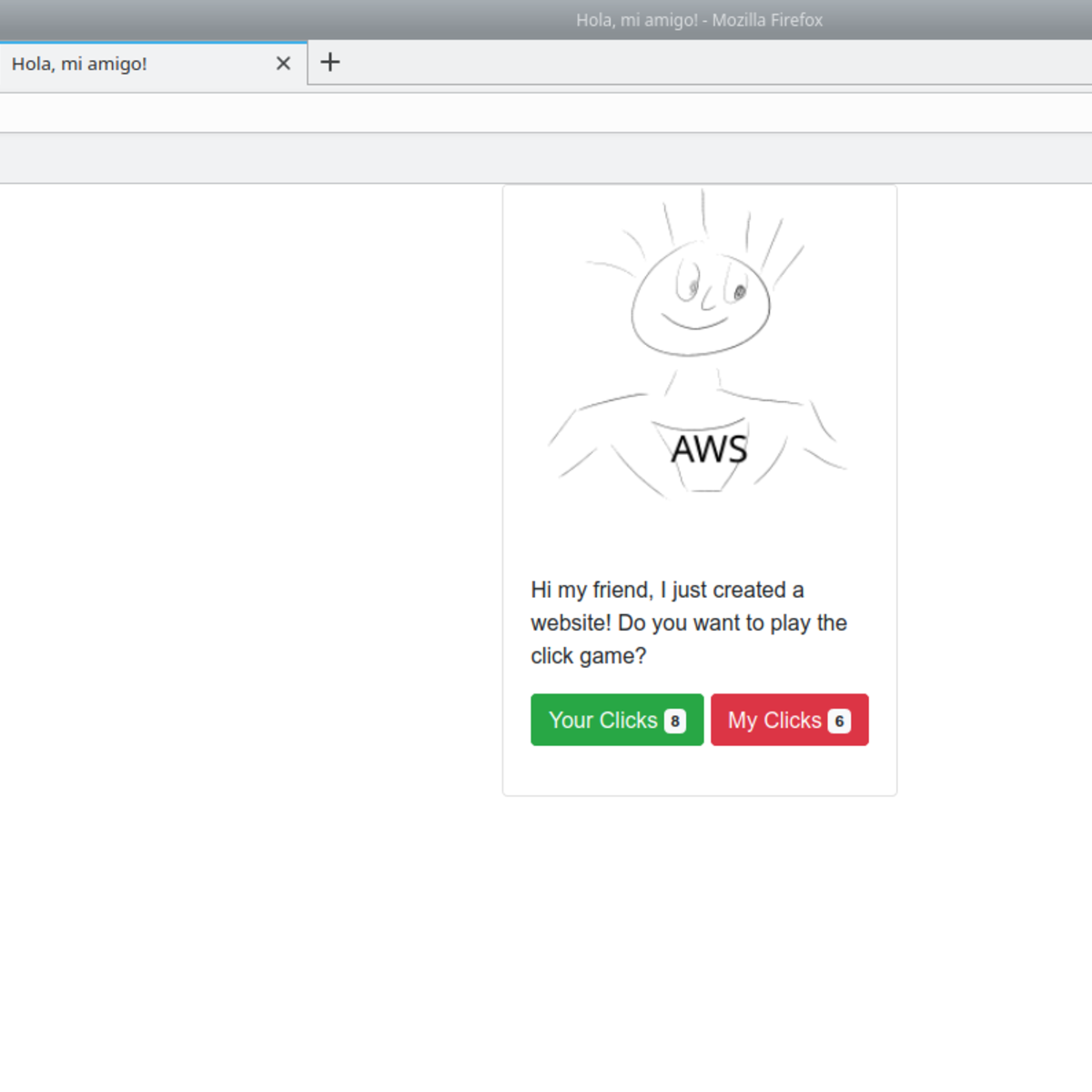
In this project-based course, you will learn how to launch your own server at Amazon AWS Lightsail, configure your own SSH client and upload files to the server. Then, you will learn how to modify the server to access it privately. Further, you will learn how to change the server configuration to have a simple NodeJS game with both a backend and frontend started automatically and its content served through the Apache webserver.
Note: To avoid distraction for setup during the course, we would recommend that you create an Amazon AWS account beforehand.
What's inside
Syllabus
Good to know
Save this course
Reviews summary
Beginner-friendly aws course
Activities
Review course materials and class notes
Show steps
Solidify your understanding of the course material by regularly reviewing and organizing notes.
Show steps
-
Go over lecture slides and class notes.
-
Organize and categorize your notes.
-
Identify any areas that need further clarification.
Attend Node.js meetup groups
Show steps
Connect with other Node.js enthusiasts, exchange ideas, and stay up-to-date on industry trends.
Browse courses on
Node.js
Show steps
-
Research local Node.js meetup groups or conferences.
-
Attend events regularly and engage in discussions.
-
Share your knowledge and experience with others.
Answer questions on Node.js forums
Show steps
Strengthen your understanding of Node.js by assisting others and clarifying concepts.
Browse courses on
Node.js
Show steps
-
Join Node.js community forums or online discussion groups.
-
Monitor discussions and identify questions related to Node.js.
-
Provide thoughtful and helpful responses to questions.
Three other activities
Expand to see all activities and additional details
Show all six activities
Node.js coding exercises
Show steps
Reinforce your understanding of Node.js concepts and syntax through repetitive coding exercises.
Show steps
-
Solve coding challenges on platforms like Leetcode or HackerRank.
-
Practice writing Node.js scripts that perform various tasks.
-
Create small Node.js applications to experiment with different features.
Create a Node.js web application
Show steps
Create a practical project that solidifies your understanding of the course's concepts by applying them to a real-world scenario.
Browse courses on
Node.js
Show steps
-
Create a new Node.js project and install the necessary dependencies.
-
Create a backend API endpoint using Express.js.
-
Create a frontend user interface using HTML and CSS.
-
Configure Apache to serve the frontend application files.
-
Deploy the application to Amazon AWS Lightsail.
Custom Node.js module
Show steps
Enhance your programming skills by creating and publishing a reusable Node.js module.
Browse courses on
Package Management
Show steps
-
Identify a need or problem that can be solved with a Node.js module.
-
Design and implement the module, including its interface and functionality.
-
Write unit tests to ensure the module works as intended.
-
Publish the module to a package repository like npm.
Review course materials and class notes
Show steps
Solidify your understanding of the course material by regularly reviewing and organizing notes.
Show steps
- Go over lecture slides and class notes.
- Organize and categorize your notes.
- Identify any areas that need further clarification.
Attend Node.js meetup groups
Show steps
Connect with other Node.js enthusiasts, exchange ideas, and stay up-to-date on industry trends.
Browse courses on
Node.js
Show steps
- Research local Node.js meetup groups or conferences.
- Attend events regularly and engage in discussions.
- Share your knowledge and experience with others.
Answer questions on Node.js forums
Show steps
Strengthen your understanding of Node.js by assisting others and clarifying concepts.
Browse courses on
Node.js
Show steps
- Join Node.js community forums or online discussion groups.
- Monitor discussions and identify questions related to Node.js.
- Provide thoughtful and helpful responses to questions.
Node.js coding exercises
Show steps
Reinforce your understanding of Node.js concepts and syntax through repetitive coding exercises.
Show steps
- Solve coding challenges on platforms like Leetcode or HackerRank.
- Practice writing Node.js scripts that perform various tasks.
- Create small Node.js applications to experiment with different features.
Create a Node.js web application
Show steps
Create a practical project that solidifies your understanding of the course's concepts by applying them to a real-world scenario.
Browse courses on
Node.js
Show steps
- Create a new Node.js project and install the necessary dependencies.
- Create a backend API endpoint using Express.js.
- Create a frontend user interface using HTML and CSS.
- Configure Apache to serve the frontend application files.
- Deploy the application to Amazon AWS Lightsail.
Custom Node.js module
Show steps
Enhance your programming skills by creating and publishing a reusable Node.js module.
Browse courses on
Package Management
Show steps
- Identify a need or problem that can be solved with a Node.js module.
- Design and implement the module, including its interface and functionality.
- Write unit tests to ensure the module works as intended.
- Publish the module to a package repository like npm.
Career center
Software Developer
Web Developer
Cloud Engineer
DevOps Engineer
Data Analyst
Systems Administrator
Technical Support Specialist
IT Manager
Product Manager
Quality Assurance Analyst
Business Analyst
Project Manager
UX Designer
Data Scientist
Machine Learning Engineer
Reading list
Share
Similar courses
OpenCourser helps millions of learners each year. People visit us to learn workspace skills, ace their exams, and nurture their curiosity.
Our extensive catalog contains over 50,000 courses and twice as many books. Browse by search, by topic, or even by career interests. We'll match you to the right resources quickly.
Find this site helpful? Tell a friend about us.
We're supported by our community of learners. When you purchase or subscribe to courses and programs or purchase books, we may earn a commission from our partners.
Your purchases help us maintain our catalog and keep our servers humming without ads.
Thank you for supporting OpenCourser.



